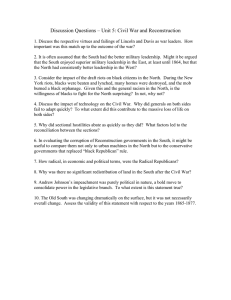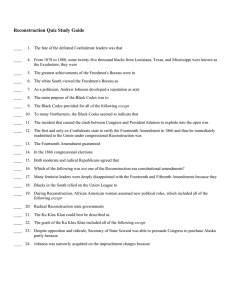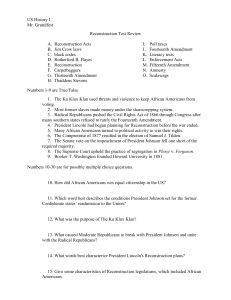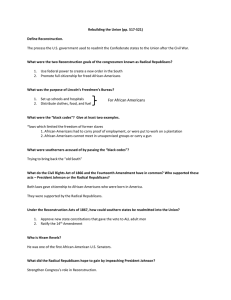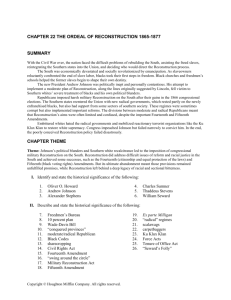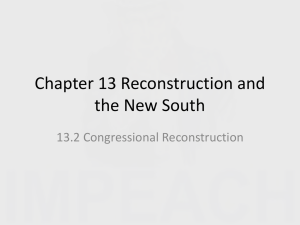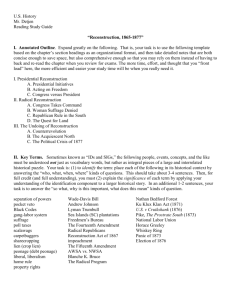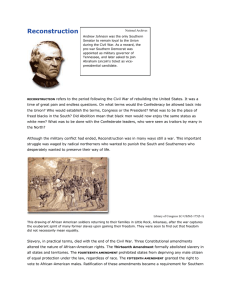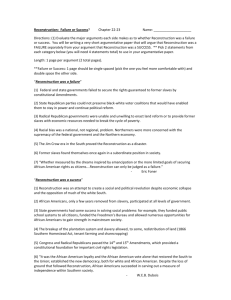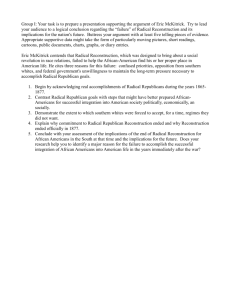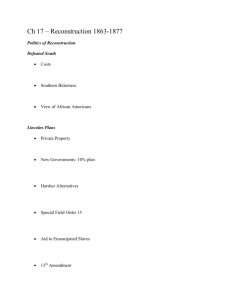Essays Berkin Chapter 15
advertisement
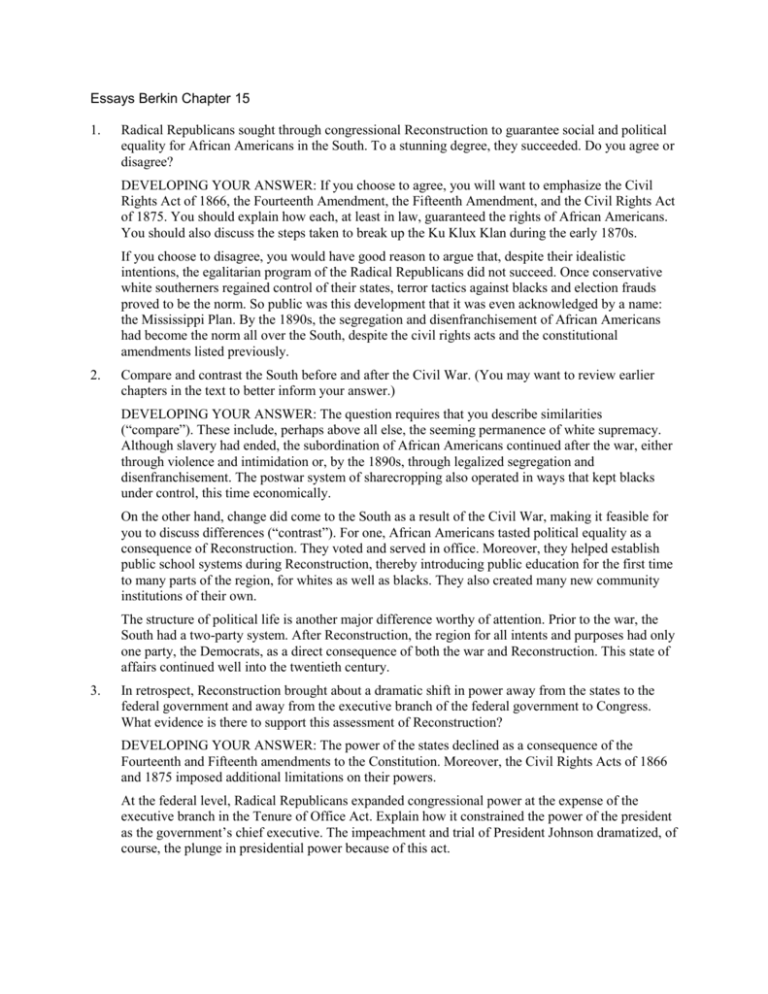
Essays Berkin Chapter 15 1. Radical Republicans sought through congressional Reconstruction to guarantee social and political equality for African Americans in the South. To a stunning degree, they succeeded. Do you agree or disagree? DEVELOPING YOUR ANSWER: If you choose to agree, you will want to emphasize the Civil Rights Act of 1866, the Fourteenth Amendment, the Fifteenth Amendment, and the Civil Rights Act of 1875. You should explain how each, at least in law, guaranteed the rights of African Americans. You should also discuss the steps taken to break up the Ku Klux Klan during the early 1870s. If you choose to disagree, you would have good reason to argue that, despite their idealistic intentions, the egalitarian program of the Radical Republicans did not succeed. Once conservative white southerners regained control of their states, terror tactics against blacks and election frauds proved to be the norm. So public was this development that it was even acknowledged by a name: the Mississippi Plan. By the 1890s, the segregation and disenfranchisement of African Americans had become the norm all over the South, despite the civil rights acts and the constitutional amendments listed previously. 2. Compare and contrast the South before and after the Civil War. (You may want to review earlier chapters in the text to better inform your answer.) DEVELOPING YOUR ANSWER: The question requires that you describe similarities (“compare”). These include, perhaps above all else, the seeming permanence of white supremacy. Although slavery had ended, the subordination of African Americans continued after the war, either through violence and intimidation or, by the 1890s, through legalized segregation and disenfranchisement. The postwar system of sharecropping also operated in ways that kept blacks under control, this time economically. On the other hand, change did come to the South as a result of the Civil War, making it feasible for you to discuss differences (“contrast”). For one, African Americans tasted political equality as a consequence of Reconstruction. They voted and served in office. Moreover, they helped establish public school systems during Reconstruction, thereby introducing public education for the first time to many parts of the region, for whites as well as blacks. They also created many new community institutions of their own. The structure of political life is another major difference worthy of attention. Prior to the war, the South had a two-party system. After Reconstruction, the region for all intents and purposes had only one party, the Democrats, as a direct consequence of both the war and Reconstruction. This state of affairs continued well into the twentieth century. 3. In retrospect, Reconstruction brought about a dramatic shift in power away from the states to the federal government and away from the executive branch of the federal government to Congress. What evidence is there to support this assessment of Reconstruction? DEVELOPING YOUR ANSWER: The power of the states declined as a consequence of the Fourteenth and Fifteenth amendments to the Constitution. Moreover, the Civil Rights Acts of 1866 and 1875 imposed additional limitations on their powers. At the federal level, Radical Republicans expanded congressional power at the expense of the executive branch in the Tenure of Office Act. Explain how it constrained the power of the president as the government’s chief executive. The impeachment and trial of President Johnson dramatized, of course, the plunge in presidential power because of this act.
